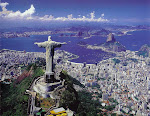
Brazil, officially the Federative Republic of Brazil, is the largest country in South America and the only Portuguese-speaking country in the Americas.Brazil is a federation composed of twenty-six States, one federal district (which contains the capital city, Brasília) and municipalities. Following more than three centuries under Portuguese rule, Brazil gained its independence in 1822, maintaining a monarchical system of government until the abolition of slavery in 1888 and the subsequent proclamation of a republic by the military in 1889. Brazilian coffee exporters politically dominated the country until populist leader Getulio VARGAS rose to power in 1930. By far the largest and most populous country in South America, Brazil underwent more than half a century of populist and military government until 1985, when the military regime peacefully ceded power to civilian rulers. Brazil continues to pursue industrial and agricultural growth and development of its interior. Exploiting vast natural resources and a large labor pool, it is today South America's leading economic power and a regional leader. Highly unequal income distribution and crime remain pressing problems.














